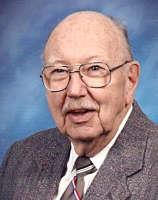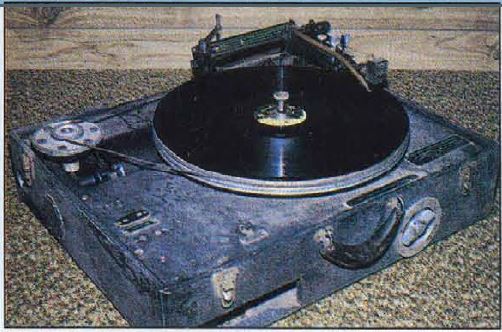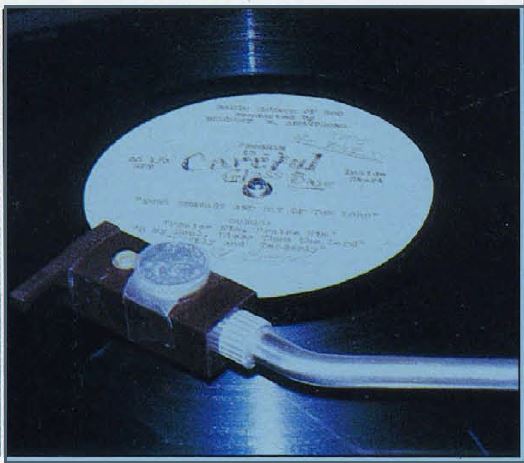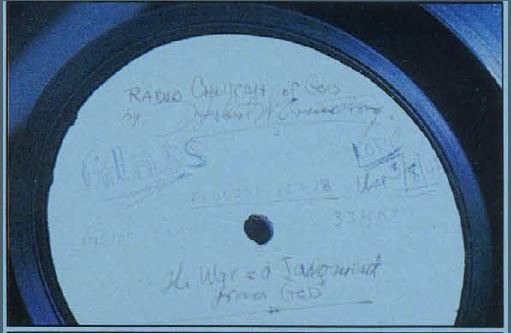
Don Hunter Information

(1914-2016)
|
Information (Recorded Mr Armstrong's original radio programs) |
|
|
Item |
Comment |
| Information from the Good News magazine* | May 1986, p. 5 |
| Information from the Autobiography, Vol. 2** | |
| Obituary*** |
29 May 2016
https://eugenearttalk.com/2016/05/don-hunter-1914-2016/ |
| Sound Bites article**** |
2003
https://www.thefreelibrary.com/Sound+bites.-a0110168740 |
| Gravesite | https://www.findagrave.com/memorial/202240768/donald-l-hunter/ |
*The photographs below come from Good News, May 1986, p. 5:
 |
 |
| "Don Hunter sits in the basement recording studio of his Eugene home, where he engineered the first recordings of Mr. Armstrong's radio broadcasts. Mr. Hunter is now a retired director of audiovisual services for the University of Oregon." | "Mr Armstrong's messages were cut into discs by the machine..." |
 |
 |
**Source is The Autobiography, Volume 2:

MAY 29, 2016
/ BOB
KEEFER / DON
HUNTER, 1914-2016
Found-sound documentarian
Don Hunter has died at his home in Eugene, according to a family
obituary in today’s Register-Guard. He was
101.
Hunter, whom I met and interviewed
in 2003, was a grown-up version of the
smart, geeky kid who ran the audio-visual stuff in high school — except that he
did it on a grand scale, founding the University of Oregon’s audio-visual
department in 1947 and running it for 30 more years.
Fascinated by the ability to
record sound, Hunter recorded everything: The sound of light switches snapping.
The sound of chain saws in the woods. The sound of a telephone operator saying,
“Number, please?”
He knew all those sounds
would one day vanish, and wanted to preserve them for the future. “I loved
getting out and getting the sounds of nature,” he told me. “And I especially
loved sounds that were disappearing.”
Hunter was also an
accomplished photographer, and was giving slideshow presentations with sound
added in, often about the Oregon landscape, before the term “multimedia” had
even been invented.
A service will be held at 2
p.m. June 10 at Central Presbyterian Church.
https://eugenearttalk.com/2016/05/don-hunter-1914-2016/
=======================
****Sound bites
Byline: Bob Keefer The Register-Guard (2003)
Don Hunter is a collector of
disappearing sounds. Steam locomotives? He's got 'em. Ever wonder what a
door-to-door wood cutter's saw once sounded like in Eugene? He can play you the
tape. When dial telephones arrived in town, Hunter thought to call up the
operator and record her saying, "Number, please."
Hunter, once a high school
techno-nerd but long since grown into respectable old age, has recorded the
sounds of circus parades, of roosters crowing, of cicadas twittering and of cats
meowing. He made what could be the first professional quality music recording in
Eugene, the University Symphony in the late 1930s.
Now 89 years old, Hunter
made his first sound recordings seven decades ago when he was a senior at Eugene
High School. He was, then, the kid who ran the school public address system, a
bright kid fascinated by a new technology. He soon had his own public address
equipment and went into the sound business part time. Before he even hit
college, Hunter had built his own acetate disc recording machine from an old
phonograph. He would later own the first reel-to-reel tape recorder seen in
Eugene.
"I was particularly
interested in field recording," recalls Hunter, a thin, voluble man with clear
eyes and short gray hair who lives in a house full of neon lights, rock
collections and model trains in South Eugene. "I loved getting out and getting
the sounds of nature. And I especially loved sounds that were disappearing."
Hunter would become
the official recordist for Eugene's first radio station, KORE. He recorded the
sounds of the McKenzie River boat parade and broadcast the parade on the radio
one year. While working for KORE he met a
preacher who wanted help recording his weekly sermon; the preacher's name was
Herbert Armstrong, and he went on to found the Worldwide Church of God.
Hunter works from an
extremely cluttered basement studio lined with thousands of 7-inch, reel-to-reel
plastic and paper audio tapes. The labels on their boxes give some idea of the
wide range of his interests:
"S.P. Steam Wrecking Crew 21
Sep '65."
"Ocean & Guitar."
"Georgia Pacific Logging."
"Sound: Electric Switch,
etc."
It was about 1962 that he
managed to track down a wood saw of the type he remembers from his childhood.
"They were usually in a horsedrawn wagon. It was always exciting to go out and
see what was going on. I wanted to get that sound - but they had all long
disappeared."
On the recording, you can
hear a belt engage the saw blade from a putt-putting gasoline engine. The belt
squeaks faster and faster and finally hums evenly, just before you hear the
metallic sound of the blade biting into firewood.
More tape titles:
"Thunder."
"Quiet stream."
"Crickets."
"Frogs."
"I still record things like
that," Hunter says. "I always think I'll get a better recording, you know."
Trained as an electrical
engineer at the University of Nebraska, he worked for the Eugene Water and
Electric Board, doing technical jobs such as tracking down the source of radio
interference put out by malfunctioning transmission lines.
He also worked for a neon
sign maker in Eugene, prompting a lifetime fascination with neon. Step into
Hunter's house and you find the hallway is lit by a white neon tube that runs
along the ceiling, in place of the usual incandescent lights. So is the kitchen.
Hanging in the front window is one of a rotating seasonal display of neon art;
spring is a bunch of flowers.
Hunter also worked for the
physics department at the University of Oregon, teaching photography and physics
laboratory courses.
But his main job for the
university was running the school's audio-visual department, which he founded in
1946 and from which he retired in 1977.
Sound is not his only
avocation. Hunter has taken photographs for years, and along with his sound
tapes are hundreds of boxes of Kodachrome slides, detailing everything from the
eruption of Mount St. Helens to the loveliness of the high Cascades.
Hunter has done elaborate
slide shows around the Eugene area for years, mixing his scenic slides with his
sound recordings. He's also shown them for members of Congress to help convince
the federal government to preserve the Three Sisters wilderness.
And then there are the rocks
and trains. In other rooms in the basement, Hunter has his mineral collection on
display in glass cases complete with the kind of black light you might find at
at roadside attraction rock shop in the desert.
Another large room is
dedicated to his train addiction. An HO gauge model train runs around the edges
of a spacious room, which is otherwise decorated with real-life railroad
artifacts Hunter has acquired over the years.
But it's Hunter's sound
library that's attracted the most attention over the years. Plenty of people
have model train sets. Lots of people have photographs. Few have actual
recordings of real live steam locomotives, made in the days of steam.
Thus, Hunter and his
recordings have enjoyed a small degree of national fame in recent years. He and
his sounds have been on National Public Radio's "All Things Considered." He has
been featured on Oregon Public Broadcasting's "Art Beat" television show.
And, through the summer, the
UO Museum of Natural History has a small display about Hunter's photographs and
sound recordings. "Preserving the Sights and Sounds of Oregon: The Don Hunter
Legacy" runs through Aug. 31 at the museum, which is open from noon to 5 p.m.
Tuesday through Saturday.
The future for Hunter's vast
collection isn't yet clear. For one thing, it's not completely indexed, so only
Hunter knows for sure what's in it, though he's working with the university to
organize it all. The university, he says, wants to collect his material that's
related to the university, but could be interested in collecting more of it.
"The rest will probably go to the Oregon Historical Society or to Lane County
Historical Society," he says.
Having progressed from
acetate discs to reel-to-reel paper tape to plastic tape to casette tapes to
mini computer discs, Hunter is still moving forward technologically.
"I am just on the verge," he
says, "of buying a CD recorder ..."
Bob Keefer can be reached at
338-2325 or bkeefer@guardnet .com.
CAPTION(S):
Hunter stays intent on sound
while the train passes.
https://www.thefreelibrary.com/Sound+bites.-a0110168740